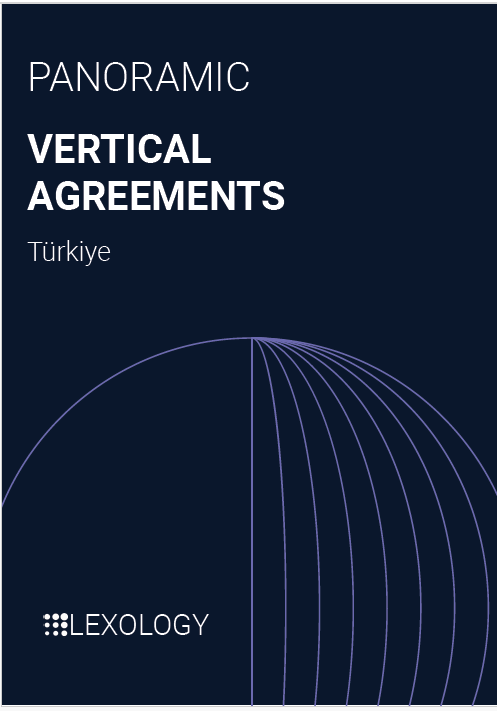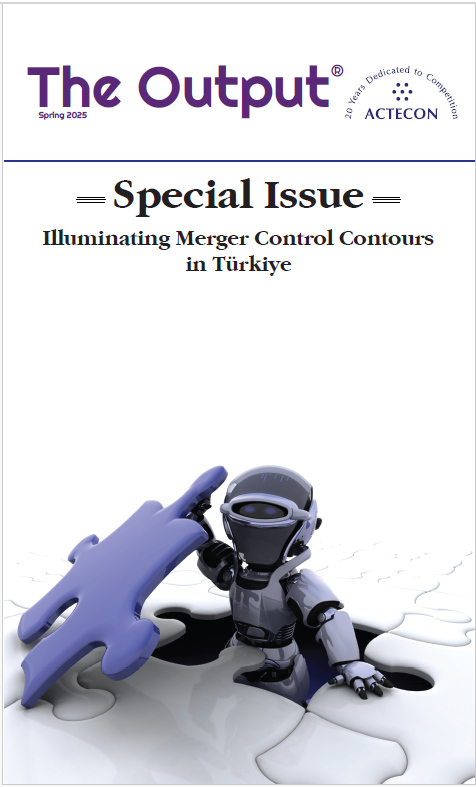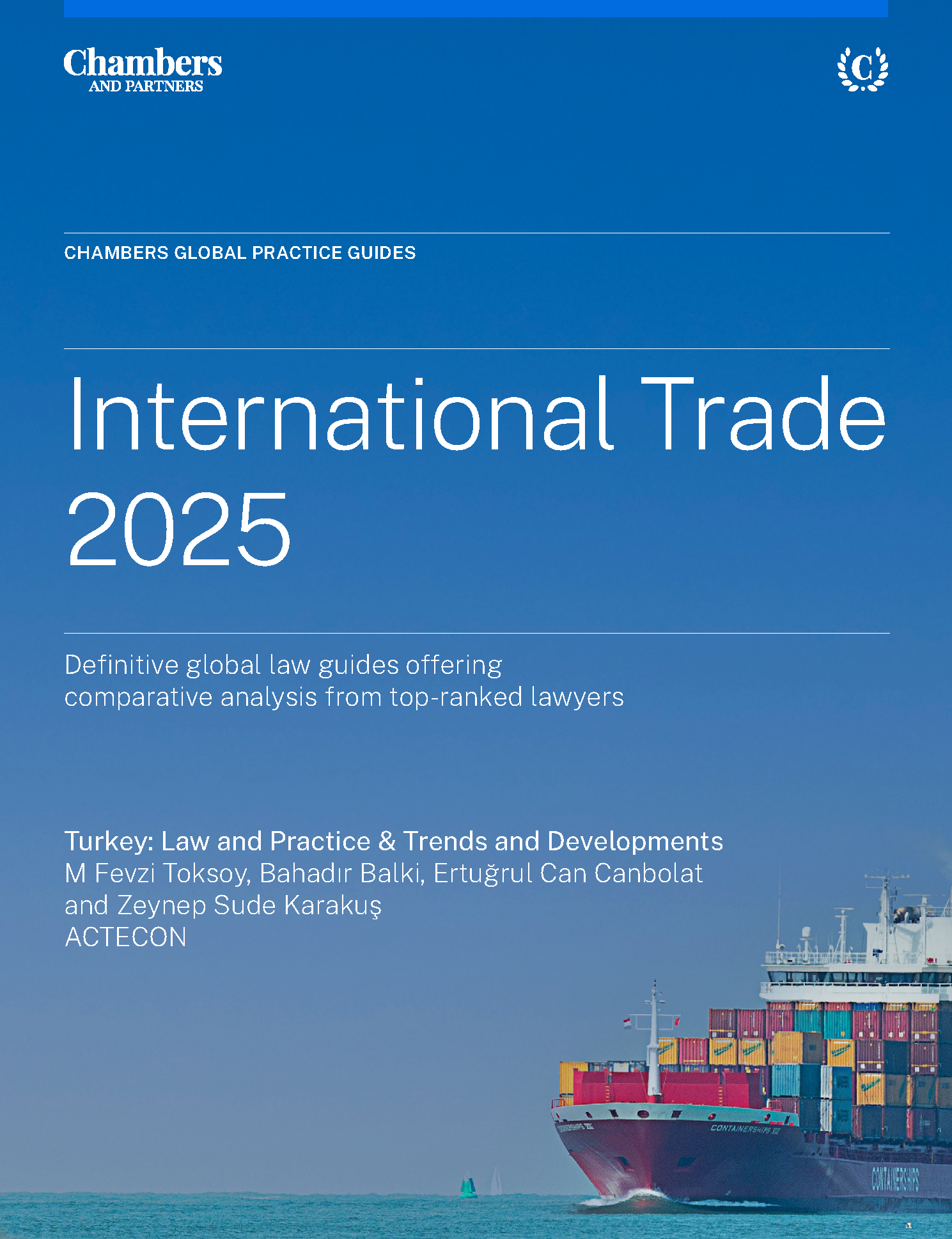Trendyol Avoids a Full-Fledged Investigation by the Turkish Competition Authority and Gets Block Exemption
| Competition Law

Trendyol Avoids a Full-Fledged Investigation by the Turkish Competition Authority and Gets Block Exemption
Article by Ertuğrul Can Canbolat, Safa Uygur and Sıla Coşkunoğlu
On 17 January 2023, the Turkish Competition Authority (“TCA”) announced its reasoned decision rendered as a result of the preliminary investigation that was conducted against DSM Grup Danışmanlık İletişim ve Satış Ticaret AŞ (“Trendyol”).[1] The preliminary investigation was initiated pursuant to a confidential complaint which alleged that Trendyol violated Articles 4 and 6 of Law No. 4054 on Protection of Competition (“Competition Law”) in the market for online food and supermarket order. This piece briefly explains the (i) dominance and abuse of dominance, (ii) block exemption and (iii) full-fledged investigation related assessments of the TCA in its reasoned decision.
Preliminary Investigation Process and Summary of Allegations
The TCA decided[2] to launch a preliminary investigation pursuant to a complaint with a confidentiality request. As provided in the Reasoned Decision, the relevant complaint alleged that in the markets for online food order-service platform services and online FMCG goods order-service platform services, Trendyol (i) mandated participation in its discount campaigns, which may be construed as a method of resale price maintenance (“RPM”), (ii) prevented sellers from working with competing platforms and (iii) prevented sellers from transporting their data. Finally, it was claimed that in the market for online food order-service platform services, Trendyol mandated most favoured customer (“MFC”) clauses.
As the allegations were found to be relevant in terms of both Article 4 and Article 6 of the Competition Law (akin to Articles 101 and 102 of the Treaty on the Functioning of the EU, respectively), the TCA first assessed Trendyol’s position in the relevant product markets.
Dominance and Abuse of Dominance Assessment
Before delving into the dominance assessment, the TCA defined three relevant product markets for the relevant case: (i) multi-category e-marketplaces, (ii) online food order-service platform services and (iii) online FMCG order-service platform services. The TCA then conducted a dominance analysis and considered Trendyol’s position in each market with its relevant services.
Multi-category E-marketplaces
Under this section, the TCA referred to the interim measure decision previously rendered with regard to Trendyol.[3] Accordingly, because (i) a short time passed since the Interim Measure Decision and (ii) no substantial developments were observed in the relevant market, which would require the TCA to revise its previous assessments, the TCA defined one of the relevant markets in the present case as the market for “multi-category e-marketplaces”.
As for assessing Trendyol’s position in the market, the TCA referred to its assessments in the “E-marketplace Platforms Sector Inquiry Final Report”, which establish that Trendyol (i) is the most preferred platform for consumers,[4] (ii) demonstrated a much more extensive transactional growth pattern since 2018 as compared to its competitors and the relevant market reached a concentrated level in 2020 with Trendyol in the leading position together with one of its competitors,[5] Hepsiburada, (iii) recorded the highest market share increase since 2018 and (iv) was the leader in the market also in terms of transaction volumes of third party sellers.
In that context, the TCA again referred to the conclusion in the Interim Measure Decision that Trendyol is dominant in the market for multi-category e-marketplaces. The TCA maintained this assessment as well, due to the abovementioned reasons for maintaining the same product market definition.
Online Food Order-Service Platform Services
Under this section, the TCA first detailed the operation model of Trendyol Yemek, which provides online food order-service platform that brings together commercial users (restaurants) and final users (consumers wishing to order food). Due to the two different groups that are serviced, Trendyol Yemek is considered as a multi-sided market in which the final users generally do not make any payments to use the platform whereas the commercial user group pays a certain rate of service fee/commission to the platform.
Online food service/order platforms provide a variety of information to the final users (e.g., location, prices, reviews) which can also be reached through the social media platforms. However, the TCA also noted that, by referring to its past Yemeksepeti Decision,[6] such channels merely decrease the cost of research, comparison and selection process of phone orders. Thus, mentioned alternative channels are only considered to facilitate phone orders and cannot be viewed as competitors of online food platforms.
In that context, the TCA conducted a substitutability analysis with respect to both the commercial users and final users. In its substitutability assessment the TCA first emphasised that as per its previous decisions,[7] direct ordering methods were not considered as alternatives to online food service/order platforms which resulted in the market definition of “online food order-service platform services”.
Regarding the substitutability in terms of final users; online platforms provide certain positive elements such as faster access to more detailed information, additional features that make research, decision and order completion process easier, reducing relevant costs for the final users. The TCA also noted that online platforms also eliminate certain risks that final users may face otherwise if they use direct ordering methods, such as; failure to reach the restaurant or issues that may arise from erroneous verbal communication with the restaurant officials.
As for commercial users, the fundamental value of these platforms is that they enable access to an extensive final user database, which is considered as much larger than the number that could be reached through direct order methods. Further, the TCA stated that it is also easier for commercial users to share their ads, promotions and discounts with the final users through the online platforms.
Finally, the TCA also underlined that the commercial users and final users themselves consider that there is no substitutability with online food order platforms.
To assess Trendyol Yemek’s position in the market for online food order-service platform services, the TCA analysed a variety of datasets which are (i) the day Trendyol Yemek started operating in each city, (ii) market shares of Trendyol and its competitors in İstanbul, Ankara, İzmir and Turkey on a monthly basis for an 18-month period based on sales numbers and amounts, (iii) number of contracted restaurants of Trendyol and its competitors in İstanbul, Ankara, İzmir and Turkey between 2020-2022/2 and (iv) number of users that successfully ordered from Trendyol and its competitors at least once a month in 3-month periods between October 2020 – February 2022 in İstanbul, Ankara, İzmir and Turkey.
In analysing the above datasets, the TCA first referred to the Yemeksepeti Decision, as a result of which Yemeksepeti submitted certain commitments to end its relevant practices that are considered as anticompetitive, which were accepted and rendered mandatory for Yemeksepeti’s compliance. In this context, the TCA emphasised that while at the beginning of the investigation of the Yemeksepeti Decision, the relevant market appeared to be entirely under the control of Yemeksepeti, currently the same market demonstrates a different outlook with the participation of Trendyol Yemek, Getir Yemek and Fuudy. As a significant point, while it is found that Trendyol’s shares observed an ever-increasing trend, the TCA noted that this is not specific to Trendyol since Getir Yemek reached a similar acceleration since its entry into the market before Trendyol. As a result, the TCA confirmed that the market has reached a more competitive structure.
Regarding the number of contracted restaurants, while Getir retains the highest number, the TCA noted that Trendyol is rapidly increasing its contracted restaurants especially in İstanbul and it is extremely likely for Trendyol to catch up with its competitors on this front.
Considering all of the foregoing, the TCA established that Trendyol made a successful entry into the market and as of February 2022, has become an important player in the market. On the other hand, the TCA also maintained that Getir Yemek also became an important power in the market and that Yemeksepeti still retains its position as the market leader. As a result, the TCA concluded that Trendyol is not dominant in the market for online food order-service platform services.
Online FMCG Order-Service Platform Services
Under this section, the TCA noted (i) speed of delivery and (ii) nature of the service as two fundamental distinctions in classifying online market order services.
In terms of speed, the TCA identified two different groups of services; (i) market orders that are delivered within a 10–15-minute period by applications such as Getir and Yemeksepeti Banabi and (ii) market orders that are delivered on an appointment basis by applications such as Migros Sanal Market.
As for the nature of services, the TCA identified several different business models; (i) online applications providing online market order services (e.g., Getir, Getir Büyük, Yemeksepeti Banabi, Migros Sanal Market) and (ii) providing the relevant services through intermediaries (e.g., Yemeksepeti Mahalle, Getir Çarşı, Trendyol Market).
First, it is considered that there was no found to define a sub-market with respect to speed of delivery as Trendyol Market provides both fast and appointment deliveries. On the other hand, in terms of the nature of the services, Trendyol is determined as operating only as an intermediary platform, as opposed to Yemeksepeti and Getir.
All in all, the TCA refrained from making an exact market definition for the case at hand but states that it conducted its analyses by considering the market for FMCG order-service platform services to demonstrate the most risky conditions.
To assess Trendyol’s position in the market for FMCG order-service platform services, the TCA again analysed a variety of datasets which are (i) market shares of Trendyol and its competitors in İstanbul, Ankara, İzmir and Turkey on a monthly basis for an 18-month period based on sales numbers and amounts, (ii) number of contracted companies of Trendyol and its competitors in İstanbul, Ankara, İzmir and Turkey between 2020-2022/2 and (iii) number of users that successfully ordered from Trendyol and its competitors at least once a month in 3-month periods between October 2020 – February 2022 in İstanbul, Ankara, İzmir and Turkey.
Pursuant to assessing the relevant data, the TCA established that Trendyol made a successful entry to the online FMCG order-service platform services through its user base and user dependency retained from the multi-category e-marketplaces. While emphasising that with its Trendyol Market service, Trendyol is in a considerably strong position in the market for online FMCG order-service platform services, the TCA noted that (i) the market shares of undertakings were calculated in the narrowest sense and that (ii) no exact market was defined due to the necessity of a substitutability analysis.
Assessments Based on Specific Allegations
As summarised above, four main allegations were assessed in this decision; (i) RPM, (ii) exclusivity, (iii) MFC clause and (iv) data portability.
RPM Allegations
The TCA noted that no information/documents were obtained during the preliminary investigation which establish that Trendyol mandated participation in its campaign and accordingly determined resale prices. No such clauses were seen in the service agreements used for Trendyol Yemek and Trendyol Market either. With regard to Trendyol Market, it was provided that the costs of providing discounts to the consumers can only be met pursuant to the mutual agreement with the seller.
Exclusivity Allegations
The TCA conducted its exclusivity assessment separately for Trendyol Yemek and Trendyol Market.
Assessments Regarding Trendyol Yemek
It was alleged that Trendyol obstructed transfers to its competitor platforms through year-long exclusivity agreements. The TCA noted that no findings were reached demonstrating that such transfers were obstructed, and certain sanctions were implemented. However, it is also provided, pursuant to the summary and analyses of the relevant documents obtained during the preliminary investigation period, that Trendyol did implement an exclusivity agreement with one or more parties, names of which were redacted from the reasoned decision, pursuant to own requests of the relevant parties. The TCA also reviewed the standard contracts signed with other parties and found no exclusivity clauses.
The TCA then moved on to a block exemption analysis pursuant to the Block Exemption Communiqué No. 2002 on Vertical Agreements (“Block Exemption Communiqué”). In this context, it is first explained that the exclusivity clause imposed by Trendyol constitutes a vertical restriction based on the Block Exemption Communiqué. The TCA then noted the 30% market share threshold provisioned by the communiqué and established that during the relevant periods, Trendyol’s market share did not exceed the relevant threshold.
As a final matter, the TCA assessed whether there were any other provisions that exclude Trendyol’s relevant practices from the scope of the Block Exemption Communiqué (e.g., RPM, customer/regional restrictions, restrictions of passive sales) and found that no such provisions existed.
Accordingly, the TCA concluded that Trendyol’s agreement with the exclusivity clause enjoyed block exemption within the scope of the Block Exemption Communiqué.
Assessments Regarding Trendyol Market
The TCA first noted that no such restrictive practices were implemented for Trendyol Market either and that there were no exclusivity clauses in agreements concluded in this respect.
On the other hand, pursuant to an information request, Trendyol itself submitted that there was a limited exclusivity practices implemented with one of their clients. Trendyol explained that while the initially agreed exclusivity period was arranged as 5 years, the parties did not implement this for the entire duration and exclusivity only remained for 20 months and that there were no sanctions attached to this practice.
In this respect, the TCA concluded that the allegations were not supported in terms of Trendyol Market.
MFC Clause Allegations
It was also alleged that Trendyol used its data power to ensure that sellers complied with the effective MFC conditions in its Trendyol Yemek service. While the TCA stated that no findings were obtained to demonstrate that Trendyol implemented a prominent placement promise in exchange for compliance with MFC condition, there was a MFC clause within the agreements concluded with sellers. On the other hand, Trendyol provided that there was no tracking mechanism or punitive sanctions and that they have never followed through on whether the relevant provision was complied with.
The TCA then referred to the MFC clause explanations provided in the Guidelines on Vertical Agreements (“Vertical Guidelines”) which provides that the implementing party may benefit from block exemption depending on its market share, which should be below 30%. As also noted above, Trendyol’s market shares in the relevant periods do not exceed the set threshold.
As a result, the TCA concluded that the MFC clause implemented by Trendyol in its vertical relationship with the restaurants benefits from block exemption.
Data Portability Allegations
Before delving into the specifics of the case at hand, the TCA emphasised the significance of data portability for the data owner, especially in terms of the relevant costs. In that context, it is noted that if a dominant undertaking rejects enabling data portability, this could create barriers to entry to the market and result in abuse of dominance through exclusionary behaviour.[8] Accordingly, the issue of data portability is considered within the scope of market foreclosure and restriction of competitor behaviour within the scope of Article 6 of the Competition Law.
As for Trendyol’s circumstances, it is noted that (i) Trendyol is not dominant in the market for online food order-service platform services, (ii) no information/documents were obtained to demonstrate that Trendyol prevented data portability and in fact (iii) evidence supported that Trendyol actually did not prevent data portability.
On the other hand, the TCA noted that upon review of the agreements conducted with sellers pursuant to Trendyol Yemek and Trendyol Market activities, certain provisions created the suspicion that there could be restrictions on portability of especially visual data. Accordingly, restrictions were implemented upon sellers only when mentioned visuals constituted a “work” within the scope of applicable intellectual property regulations and if not, no obligations existed. Further, it was also seen that certain obligations were implemented depending on the owner of the content, i.e., if Trendyol and the third-party seller owned the content, commercial use of said content was contingent upon Trendyol’s written approval. Upon reviewing Trendyol’s explanations and relevant applicable intellectual property regulations on this front, the TCA concluded that relevant provisions essentially aimed to prevent any intellectual property related conflicts that may arise and did not aim to prevent the portability of the seller’s data.
In light of the above considerations, the TCA concluded that Trendyol did not abuse its dominant position pursuant to Article 6 of the Competition Law through prevention of data portability.
Conclusion
All in all, while the TCA recognised Trendyol’s prominent position in the markets that it operates in, either no infringements were found or even in potentially risky circumstances, Trendyol’s justifications were found sufficient. However, as the TCA conducts case by case analysis, this should not be considered as a generally softened approach towards undertakings operating in digital markets, especially in light of the current draft version of new rules aimed at regulating digital markets (i.e., rules that are akin to the EU’s Digital Markets Act).
Previously published by Concurrences on January 25, 2023
[1] See Decision dated 18.05.2022 and numbered 22-23/364-154 (“Reasoned Decision”): https://rekabet.gov.tr/Karar?kararId=b6684eb6-1ca3-4551-945e-7487d0930393
[2] See Decision dated 03.02.2022 and numbered 22-07/99-M.
[3] See Decision dated 30.09.2021 and numbered 21-46/669-334 (“Interim Measure Decision”): https://rekabet.gov.tr/Karar?kararId=db0cca8a-e6ca-4eab-970e-304741dc965b
[4] Moreover, the TCA explains that the sellers see Trendyol as an indispensable partner.
[5] The TCA noted that when transactional volume is considered, Hepsiburada was in the leader position until 2019 and a total of four undertakings dominated the market with similar market shares.
[6] See Decision dated 09.06.2016 and numbered 16-20/347-156 (“Yemeksepeti Decision”): https://rekabet.gov.tr/Karar?kararId=0bd0157a-2b4d-43ce-85a3-2af821bb387b
[7] See Decision dated 09.06.2016 and numbered 16-20/347-156 (https://rekabet.gov.tr/Karar?kararId=0bd0157a-2b4d-43ce-85a3-2af821bb387b); dated 29.11.2018 and numbered 18-45/707-347 (https://rekabet.gov.tr/Karar?kararId=899d34bc-4e0c-4c17-9bda-d1dc677daafc).
[8] Regarding data portability, the TCA refers to two of its previous decisions; Bilsa Decision dated 21.03.2007 and numbered 07-26/238-77 (https://rekabet.gov.tr/Karar?kararId=b00d7415-cd64-4364-823c-9c2200b7f4d9); Nadir Kitap Decision dated 07.04.2022 and numbered 22-15/273-122.







